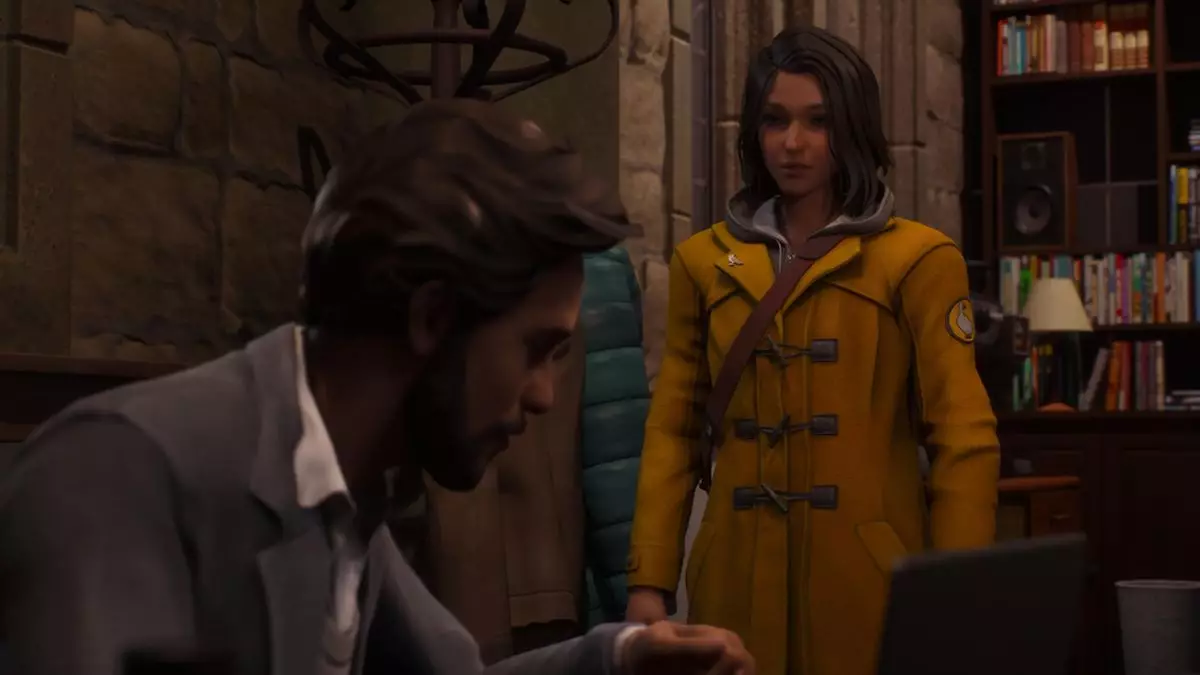In the enigmatic world of *Life Is Strange: Double Exposure*, players find themselves enthralled by the gripping storylines and complex character interactions. One pivotal moment arises when players navigate the intricacies of Lucas’ office, delving into a mystery that revolves around the tragic story of Maya Okada. While the search for evidence may seem straightforward, a closer exploration uncovers numerous layers of narrative depth and character development that enhance the overall experience. This article aims to dissect the process of investigating Lucas’ office, highlighting not only the steps involved but also the decisions that shape the unfolding story.
Before entering Lucas’ office, players engage in pivotal conversations with characters like Gwen, Yasmin, and Vinh. These interactions serve as a prelude to Max’s snooping mission. The tone of the conversation with Lucas is significantly influenced by the choices players have made earlier in the game. This dynamic element reinforces the theme of consequences, illustrating how prior decisions impact character relationships. For instance, sending a restraining order photo to Safi may sour Lucas’ mood, thereby affecting the quality of the information he divulges. Such nuances enrich the gameplay, prompting players to reflect on their choices and their impact on character dynamics.
Navigating to Lucas’ Office
Once the conversations conclude, players must transition into the Dead World timeline to access Lucas’ empty office. This requires a strategic approach, as finding the Shift point near the café can prove challenging. Upon arriving at the office, players are met with various interactive elements, including polaroid collectibles and documents that echo the game’s central themes of loss and betrayal. The environmental storytelling in Lucas’ office is elaborate, allowing players to immerse themselves fully in the narrative.
Unlocking Secrets: Discovering Clues and Collectibles
The heart of the investigation lies within the filing cabinet’s bottom drawer, where Max discovers crucial documents that link Maya, Vinh, and Safi as former classmates. This revelation not only heightens the mystery surrounding Maya’s death but also portrays Lucas as a figure of significant influence in their academic lives, a facet that casts a shadow over his character. This connection reflects the tragic undertones of the original *Life Is Strange* narrative, drawing players deeper into the lore while maintaining a sense of continuity.
However, the investigation does not end with the drawer; players must tackle a minor puzzle to obtain the key hidden beneath a photograph on Lucas’ desk. This key serves as a gateway to deeper truths concealed within the office. The act of rotating the frame to discover the key is more than just a gameplay mechanic—it symbolizes the need for players to examine their surroundings closely and reconsider their perceptions of the characters.
Upon unlocking the typewriter tray with the key, players are met with the damning manuscript revealing Lucas’ plagiarism of Maya’s work. This shocking discovery not only raises ethical questions but also adds gravitas to the character of Lucas, painting him in a morally ambiguous light. The act of taking a snapshot of the two manuscripts reinforces Max’s role as a detective in this unfolding drama, emphasizing her agency in bringing the truth to light. This moment is pivotal, as it signifies a turning point in the relationship between Max and other characters, particularly Safi.
Consequences and Confrontation
As the narrative progresses, the revelations from Lucas’ office lead to a tense confrontation between Max and Safi. This dialogue highlights the rift created by the spread of information and gossip, portraying the emotional ramifications of such actions within the tight-knit community. Safi’s frustration serves as a poignant reminder of the collateral damage that can arise from a single choice, expertly tying back to the game’s overarching theme of interconnected fates.
Exploring Lucas’ office in *Life Is Strange: Double Exposure* is more than a mere search for evidence; it is a microcosm of the game’s broader narrative themes. The blend of environmental storytelling, character-driven choices, and uncovering hidden truths invites players to engage with the story on multiple levels. This sequence exemplifies how thoughtful gameplay mechanics can enrich a narrative, allowing players to not only solve mysteries but also to reflect on their actions and their implications on others. The journey through Lucas’ office is thus a testament to the complexity and depth of the *Life Is Strange* series, blending gameplay with emotional resonance seamlessly.


Leave a Reply